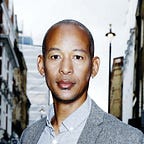NONFICTION|WRITING|CREATIVE WRITING
Being Creative Versus Being “Creative”
Why nonfiction writers should adopt the former and avoid the latter
Dear reader, I’d like you to cast your mind back to 2005. It was the year when Oprah (no need for a surname, of course) raved on her show about a memoir that had gripped her from beginning to end. A Million Little Pieces, by a then unknown James Frey, was an attempt to go under the skin of this former alcohol and drug addict. A clearly moved Winfrey even proclaimed, “[It’s] like nothing you’ve ever read before…”
Except that huge chunks of A Million were made up.
Fiction writers have it easy in a way. We know that their stories, even when based on real events, are all the fruit of their imagination. Nonfiction writers, on the other hand, have to deal with fact-checking.
That’s why for many writers the still-young category “creative nonfiction” might come across as a contradiction.
The issue is mainly with the “creative” part of it. Surely being “creative” means making stuff up, right? But that would be working under the wrong assumption. Being creative when it comes to nonfiction stands for craft. The one many of us develop over time.
